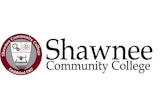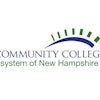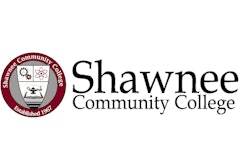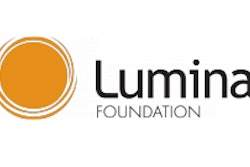NORMAL, Ill. — Students at Heartland Community College walked into a room with an “immigration” sign on the desk, but the sign was about the only thing that was understandable.
The forms they were asked to fill out were in a language they didn’t understand. The person in charge was speaking in a language they didn’t understand.
When they finally reached someone speaking their language, they were asked whether they were willing to pledge allegiance to a new country, its flag and its religion while renouncing their home country and religion.
Each who said, “No,” was sent to a separate walled-in area and had a sign hung around their neck reading, “Enemy of the people.”
It was all a simulation, but the discomfort was real.
Part of an educational event called “Boxes and Walls,” the exercise was “about raising awareness about what some of their classmates may have gone through to get here,” explained Shamelle Grabill, a tutoring services facilitator at Heartland who helped design the immigration part of the program.
An information sheet given to the students after the first exercise provided background on U.S. policies and history as well as how Nazi propaganda and Chinese and Soviet dictators used the “enemies of the people” phrase.
Students also went through two other exercises in other rooms.
In one, they sat in a circle around a fake campfire with each person reading aloud a brief story about a gay student’s experience in coming out about their homosexuality or bisexuality.
“These are real stories. They’re not just made-up stories,” said Jessica Wheeler of Heartland’s Pride Club.
Some of the stories were positive with a parent saying, “I love you and that will never change.” Others were not, including stories of being kicked out of the house or told, “You are going to hell.”
Wheeler said: “Good or bad, coming out is hard. People have to realize that.”
Entering the third room, participants were greeted by a sign saying, “Tests determine future success,” and were handed supposedly easy tests to do in a limited time.
But some tests were in tiny print, blurred print, backward lettering or were difficult to read in other ways, simulating the problems faced by students with physical or learning disabilities.
Compounding the problem, two people distracted the students by moving shades up and down, turning lights up and down, rustling papers and making noise.
Rob Willett, a graduate student in college and student personnel administration from Illinois State University who is working in Heartland’s Student Engagement Office, said, “The goal of ‘Boxes and Walls’ includes planting seeds of openness, understanding and respect for oppressed and marginalized groups.”
A “debriefing” session followed the exercises, giving students an opportunity to discuss and reflect on the experience.
Freshman Victoria Rexroat, an art major from Bloomington, said she hadn’t thought about different oppressed groups and it was helpful “to put ourselves in their shoes.”
Derrick Coney, a computer science sophomore from Chicago, said the exercise was “a good way to experience the different challenges that different types of people face.”
He said, “It really makes a difference whether you choose to interpret the knowledge as positive or negative.”
Willett said the name of the program fits its purpose, “which is to think outside of the box by throwing away stereotypes and tearing down walls of division.”
He said no one expects a single, hour-long event to bring down all those walls, but “our hope is that they would keep thinking about it.”














